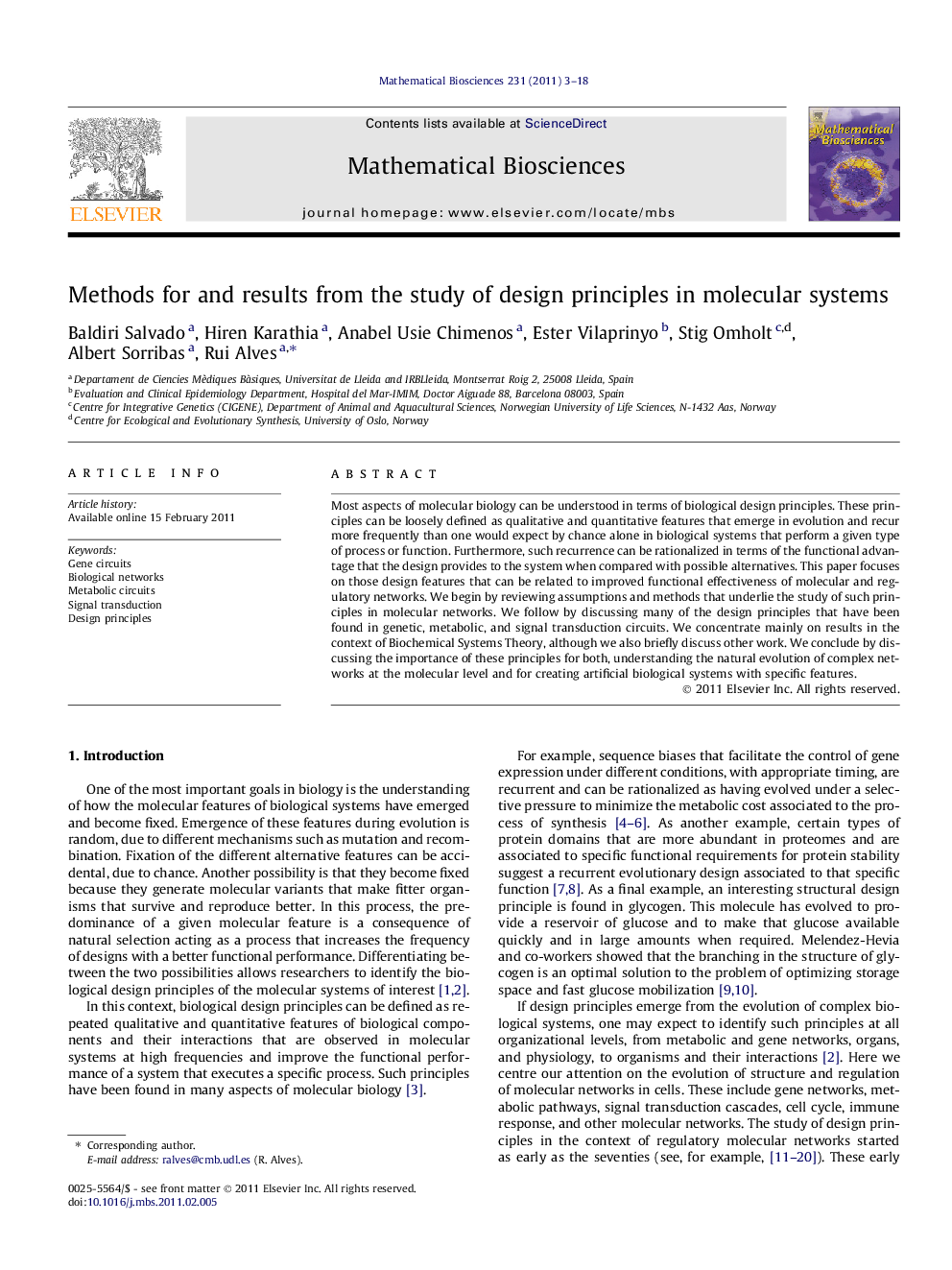| Article ID | Journal | Published Year | Pages | File Type |
|---|---|---|---|---|
| 4500444 | Mathematical Biosciences | 2011 | 16 Pages |
Abstract
Most aspects of molecular biology can be understood in terms of biological design principles. These principles can be loosely defined as qualitative and quantitative features that emerge in evolution and recur more frequently than one would expect by chance alone in biological systems that perform a given type of process or function. Furthermore, such recurrence can be rationalized in terms of the functional advantage that the design provides to the system when compared with possible alternatives. This paper focuses on those design features that can be related to improved functional effectiveness of molecular and regulatory networks. We begin by reviewing assumptions and methods that underlie the study of such principles in molecular networks. We follow by discussing many of the design principles that have been found in genetic, metabolic, and signal transduction circuits. We concentrate mainly on results in the context of Biochemical Systems Theory, although we also briefly discuss other work. We conclude by discussing the importance of these principles for both, understanding the natural evolution of complex networks at the molecular level and for creating artificial biological systems with specific features.
Related Topics
Life Sciences
Agricultural and Biological Sciences
Agricultural and Biological Sciences (General)
Authors
Baldiri Salvado, Hiren Karathia, Anabel Usie Chimenos, Ester Vilaprinyo, Stig Omholt, Albert Sorribas, Rui Alves,
